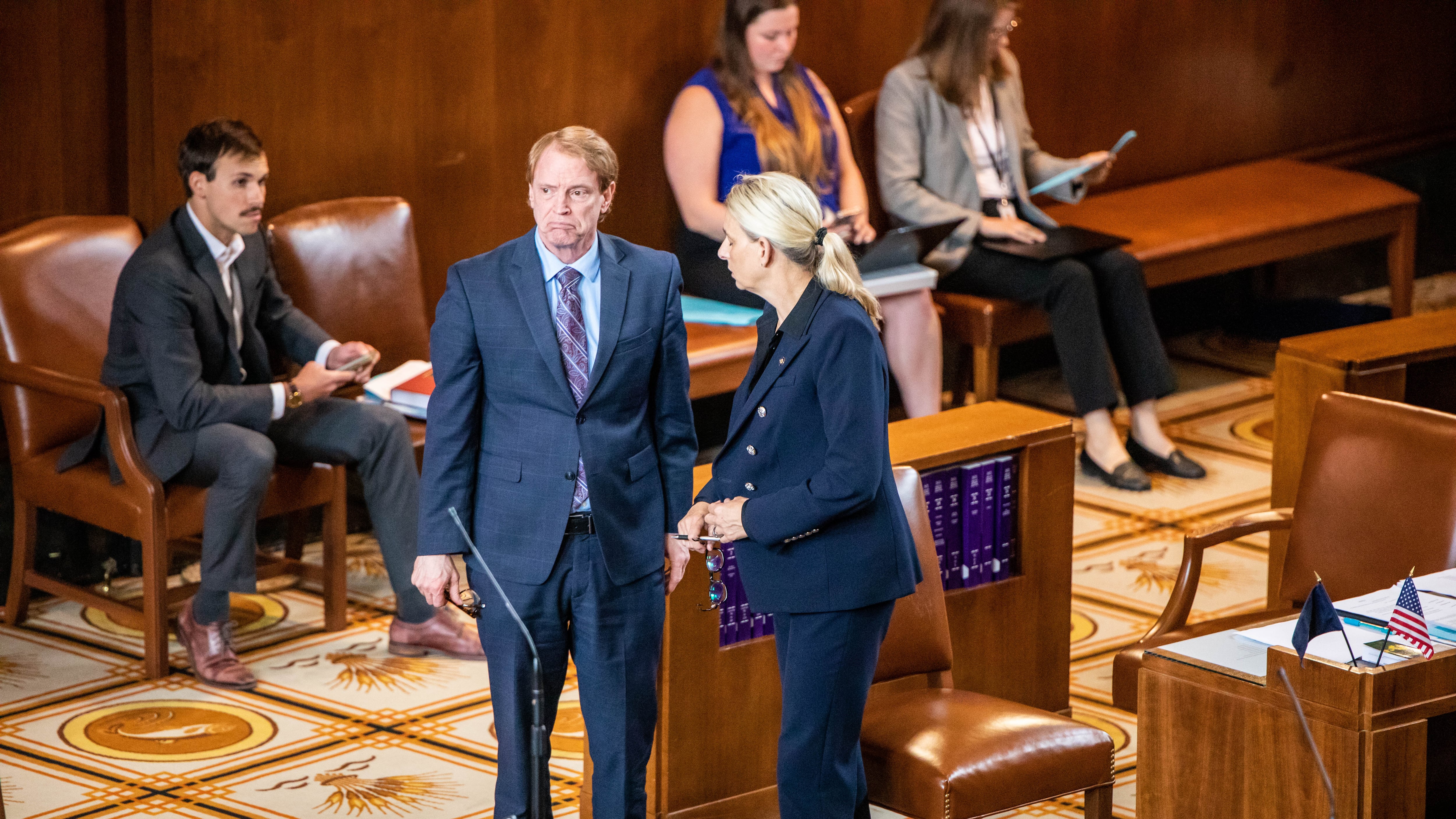The Oregon Supreme Court ruled unanimously today against GOP state senators who recorded more than 10 absences last year but seek to run for reelection despite a 2022 ballot measure aimed at barring members with more than 10 unexcused absences.
The ruling comes on the eve of the even-year short legislative session that begins Feb. 5.
At issue: clarifying an amendment to the Oregon Constitution created by Measure 113 in 2022. Oregon public employee unions and other progressive put that measure on the ballot to stop the increasingly frequent GOP tactic of walking out of the Legislature in order to stall or defeat legislation.
Legislatures in 45 states require only a simple majority of members to be present to conduct business. But in Oregon, the number required to constitute a quorum, the minimum to pass legislation, is two-thirds: 20 in the Senate and 40 in the House.
Rather than changing the quorum definition to a simple majority, however, proponents of Measure 113 contrived a different mechanism. If a member racked up 10 absences, he or she could not run for reelection.
Voters passed the measure 68% to 32%, but as WW first reported, the language placed in the Oregon Constitution failed to specify clearly when a lawmaker would suffer the penalty for 10 or more absences.
The language inserted into the constitution says:
“Failure to attend, without permission or excuse, ten or more legislative floor sessions called to transact business during a regular or special legislative session shall be deemed disorderly behavior and shall disqualify the member from holding office as a Senator or Representative for the term following the election after the member’s current term is completed.” (Emphasis added.)
But the first election following senators’ current terms that end in January 2025 is not until 2028. Applying the plain language of the constitution, Republicans argued in a lawsuit, would mean that the senators who walked out in 2023, the longest walkout in Oregon legislative history—42 days—could in fact seek reelection this year, as some of them are.
Proponents of Measure 113 argued that their intention—to end walkouts—was crystal clear and that the courts and elections officials should follow that intention.
The court said the language was ambiguous but ruled the meaning of the measure was clear. “The text did not unambiguously support either interpretation,” the court said in a statement this morning.
However, the court determined, the ballot measure history provided sufficient context to make the intention of the proponents clear.
“Reading the text of the amendment in light of the ballot title and the voters’ pamphlet, voters would have understood the disqualification to apply to the term of office immediately following the term in which a legislator accrued 10 or more unexcused absences,” the court said.
Secretary of State LaVonne Griffin-Valade, who had earlier determined that offending senators were ineligible to run this year, cheered the decision.
“I’ve said from the beginning my intention was to support the will of the voters,” Griffin-Valade said. “It was clear to me that voters intended for legislators with a certain number of absences in a legislative session to be immediately disqualified from seeking reelection. I’m thankful to the Oregon Supreme Court for providing clarity on how to implement Measure 113.”
The effect of the ruling is that the 10 senators who exceeded the 10-day threshold cannot seek reelection. Not all of them would have been on the 2024 ballot, but those who now may not run include Sens. Brian Boquist (I-Dallas), Dennis Linthicum (R-Klamath Falls), Tim Knopp (R-Bend) and Art Robinson (R-Cave Junction).
“We obviously disagree with the Supreme Court’s ruling,” said Knopp, the Senate minority leader. “But more importantly, we are deeply disturbed by the chilling impact this decision will have to crush dissent.”
Proponents disagreed.
“This ruling upholds the intent of Oregon voters; politicians need to do their jobs or lose their jobs,” said Andrea Kennedy-Smith, one of Measure 113′s chief petitioners and a board member of Service Employees International Union Local 503. “They need to play by the same rules as everyone else. We appreciate the Oregon Supreme Court’s justices for taking up and resolving this frivolous legal challenge.”
